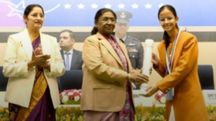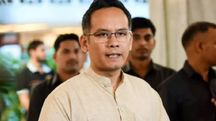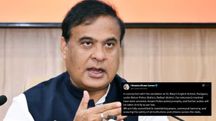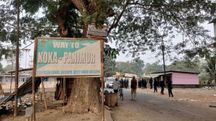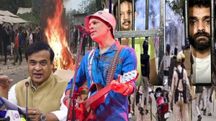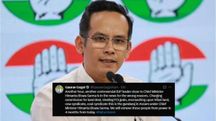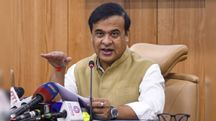Assam man inside the hijacked IC814: An interview with Aroonim Bhuyan on his father Dr. Kalyan Bhuyan’s ordeal
In an interview with India Today NE, Aroonim Bhuyan discusses his father Dr. Kalyan Bhuyan's experience during the IC814 hijacking in December 1999. The incident remains one of India's most traumatic aviation events.
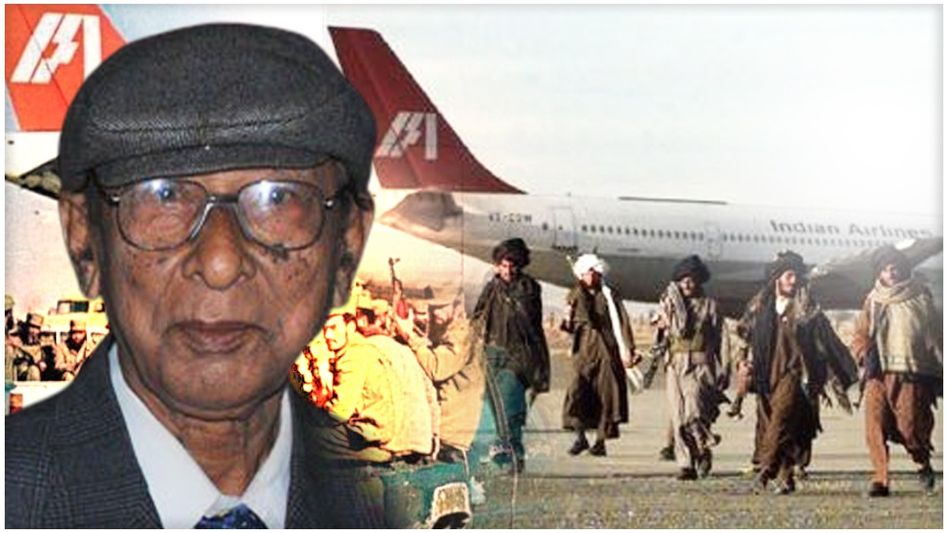 Assam man inside the hijacked IC814: An interview with Aroonim Bhuyan on his father Dr. Kalyan Bhuyan’s ordeal
Assam man inside the hijacked IC814: An interview with Aroonim Bhuyan on his father Dr. Kalyan Bhuyan’s ordealDr. Kalyan Bhuyan, a renowned microbiologist and former head of the Department of Pathology at Kathmandu Medical College from Assam's Jorhat was one among the passenger in the fateful Indian Airlines Flight No. IC814 that was hijacked in December 1999. In an interview with India Today NE , his son, Aroonim Bhuyan, shares the personal and emotional journey of his family through this traumatic event.
Aroonim Bhuyan says "My father boarded the flight from Kathmandu as usual. I was in Delhi working on some documentary and we were to meet. I first heard that the flight was delayed, but wasn't too concerned at that point in time. It was only when my uncle from Jorhat called to tell me that the flight might have been hijacked and then I began to realize the gravity of the situation".
Q: Aroonim, could you share with us how your father, Dr. Kalyan Bhuyan, boarded IC814?
Aroonim Bhuyan: He was on his way from Kathmandu to Delhi to attend a family celebration. We had planned a get-together to celebrate my youngest brother's birthday. My father was heading the Department of Pathology at Kathmandu Medical College then. The journey was supposed to be a joyous one; it instead turned into a nightmare.
Q: How did you first learn about the hijacking of IC814?
Aroonim Bhuyan: I was in Delhi at that time, working on some documentary. The flight was first delayed, which was not an extraordinary thing anyway. Then my maternal uncle phoned to give me this news about hijacking. So I did not believe it in the beginning. So, gradually as everything got clear, it clicked into my mind what exactly was happening. Well, this news spread like wildfire and we sat in front of our television, fetching any updates.
Q: What were your and your family's immediate reactions and what steps did you take during those first couple of days?
Aroonim Bhuyan: That was complete chaos. We arranged vigils in Delhi, hoping that these passengers would return safely. And there was a sense of community where friends and relatives and even strangers came out to show support. My family and I were constantly in touch with the authorities and trying to keep ourselves updated with new developments. That was a very, very anxiety-ridden period filled with uncertainty.
Q: Describe your father's experience and state of mind during the hijacking?
Aroonim Bhuyan: According to my father, the experience was one of utmost distress. The hijackers first took the flight to Amritsar and then onward to Dubai and finally to Kandahar. Inside the plane, matters were hardly in order. The air conditioning had been turned off and the interior was like a boiler inside. Nor did they get enough food or consumables. All this only added to discomfort. My father kept his calm and remained unruffled in the face of all these atrocities. He always felt that he had to keep his composure intact, if not for his own sake, then at least for the rest of the passengers.
Q: How is it that your father could remain so composed in such distressing situations?
Aroonim Bhuyan: It was wonderful, how papa remained composed. He often said that he focused on staying composed for the sake of everyone around him. His microbiology background, as well as his disciplined way of life, came in handy when it came to managing stress. Indeed, he knew being in a panic situation could heighten the moment; thus, he tried to be calm under such circumstances. He attempted to console and reassure his fellow passengers by sharing his rations and trying to keep everyone as calm as possible.
Q: How did the hijacking affect your family when your father came back home?
Aroonim Bhuyan: When my father came back, it was a mix of relief and trauma. My father went back to his professional life. The experience did linger on in his mind, though. He resumed his work at Kathmandu Medical College and retired in 2008. He spoke about the hijacking as an important event but never let that overshadow his professional life. He was a committed teacher and kept working on microbiology right up until his death in 2011.
Q: The recent web series about the hijacking has brought renewed attention to the incident. How do you feel about the portrayal of these events?
Aroonim Bhuyan: The web series was a mixed watch for me. Too many memories came back, and some of the depiction was quite true about the ordeal. Of course, there was dramatization and inaccuracies, too, as far as the portrayal of certain individuals and events in chronological order is concerned. The series did trigger some discussions and debates, which one could understand for the complexity of the situation.
Q: What would you say is the abiding legacy of your father from a personal and professional point of view?
Aroonim Bhuyan: My father's legacy goes far beyond what he did for microbiology. The grace with which my father handled the hijacking, his devotion to his students and his work ethic define his legacy. He was a figure of resilience and strength and his approach toward life and work keeps on inspiring those who knew him. He faced adversity with dignity and was able to continue beyond the trauma with great contributions in his field.
Q: How has the whole thing been a shift in your perception about life and about the work of your dad?
Aroonim Bhuyan: The experience shaped my outlook so profoundly. It has made me realize that the human spirit can be so strong and how composure plays such an important role during adversity. My father's work and his life, with the inspiration he has always provided, are a source of inspiration for me. He proved that during the bleakest of periods, there is a way of being hopeful and paying back to society with positivity.
Q: Anything else you'd like to add about your dad or the impact of the hijacking?
Aroonim Bhuyan: I would only like to say that the story of my father represents the strength of a commoner facing extraordinary events. The fact that he could keep his calm and be focused during the hijacking, and to continue working with the same passion and dedication, is really something everybody can learn from. The hijacking itself was a part of our life; it was his spirit and what he did in his line of work that actually defined him.
Copyright©2025 Living Media India Limited. For reprint rights: Syndications Today

